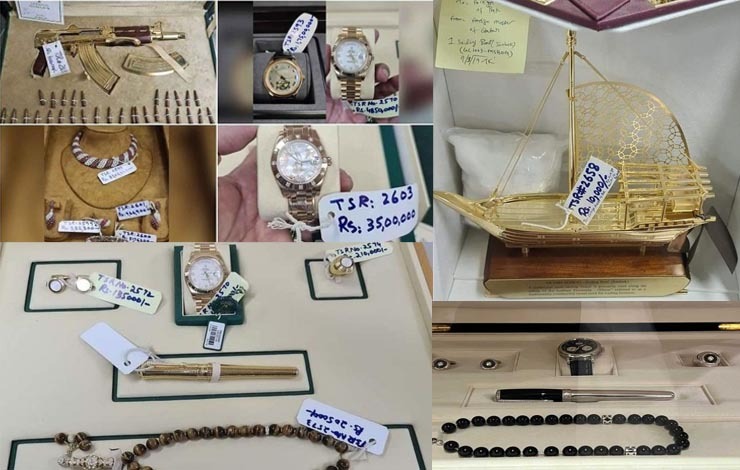In 2023, the Senate of Pakistan approved the “Toosha Khana Management and Regulation Bill,” which aims to enhance transparency and ensure the efficient handling of gifts received by public officials.
Under this bill, strict measures have been implemented to prevent corruption and ensure that gifts received by officials are used for noble causes, such as supporting girls’ education.
Restricting the Receipt of Gifts
The “Toosha Khana Management and Regulation Bill” imposes a restriction on all government officials, including the President, Prime Minister, Supreme Court Judges, and Armed Forces personnel, from receiving gifts directly or through public auctions. All gifts received will now be collected and stored in a central repository, the “Toosha Khana.”
Implementing an Evaluation Committee
To ensure accountability and proper management of the gifts, a “Toosha Khana Evaluation Committee” has been established. The committee comprises members from the Cabinet Division and the Ministry of Foreign Affairs. This committee will be responsible for evaluating the gifts’ value and presenting an annual report to the Cabinet Division, detailing the gifts received and the funds generated through public auctions.
Utilizing Funds for Girls’ Education
One significant aspect of the bill is the allocation of funds generated through public auctions. These funds will be dedicated to promoting education for young girls in underserved areas. By investing in education, the government aims to uplift communities and empower young girls to build a brighter future for themselves and their country.
Prohibition for Public Office Holders and Their Relatives
The “Toosha Khana Management and Regulation Bill” also strictly prohibits public office holders and their relatives from purchasing gifts through public auctions or any other means. This ensures that no undue advantage is taken by those in power, promoting fairness and transparency.
Merit-Based Procurement of Gifts
To maintain impartiality and avoid any biases, the “Toosha Khana Evaluation Committee” is responsible for obtaining a panel of private appraisers to determine the value of the gifts received. This approach ensures that the evaluation process is merit-based and free from any external influence.
Public Display of Gifts
The bill emphasizes preserving the country’s cultural heritage by displaying antique items and vehicles received as gifts in historical museums or government-owned properties. This step enhances the nation’s pride and preserves the legacy of valuable artifacts.
Streamlining Gift Transportation
Efficient transportation of gifts is crucial to prevent any mishandling or damage. To address this concern, gifts, especially vehicles, will be first stored in the Toosha Khana and later transferred to the Cabinet Division’s Transportation/Protocol Pool, ensuring a secure and organized transfer process.
The “Toosha Khana Management and Regulation Bill” represents a significant stride towards enhancing transparency and accountability in Pakistan’s government.
By centralizing the receipt and management of gifts, as well as utilizing the funds to support girls’ education, the government demonstrates a commitment to the betterment of the nation.
The bill’s emphasis on impartial evaluation, prohibition on public officials and their relatives from purchasing gifts, and public display of historical items further reinforce Pakistan’s dedication to preserving its cultural heritage and promoting a fair and accountable system.
The streamlined gift management process will not only enhance efficiency but also serve as a model for other countries seeking to strengthen their governance systems.
In conclusion, the “Toosha Khana Management and Regulation Bill” is a testament to Pakistan’s commitment to progress and accountability.
By optimizing the gift management process, the government sets a benchmark for transparent governance and paves the way for a brighter future for the nation and its citizens.


